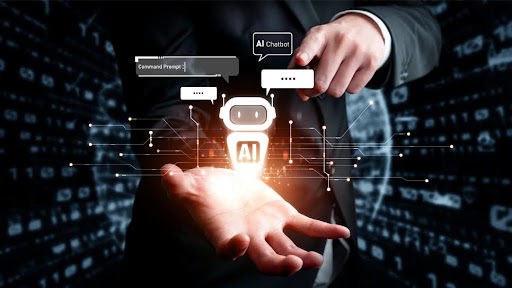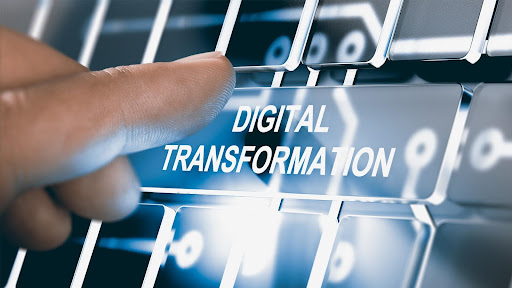AI is sliding into our lives smoothly by introducing such incredible technological advancements. For instance, chatbots, self-driving cars, and various AI applications and products have been rapidly evolving. The algorithms for AI apps and products are making them much more mature and efficient. Thus, AI is now an essential part of us and will continue to be so in the future for the digitalisation of products, apps, and more. However, AI is not only in the technological world; it also impacts digital marketing. So, what is the connection between AI and digital marketing? We will answer your question here. Also, you will know the positive and negative aspects of AI in digital marketing. Moreover, you will learn how to implement AI in digital marketing for your business.
AI and Digital Marketing – What's The Relation?
A few years back, marketing experts wanted to be more satisfied with adopting AI strategies into their marketing endeavours. However, this mindset has changed as several giants have adopted AI. For instance, Nike, Alibaba, and Amazon implemented AI strategies and achieved amazing results.
Alibaba has streamlined its fashion retail experience, which has given its customers a great experience. Not only has it boosted sales, but it has also enhanced customer engagement. Furthermore, Amazon introduced the personalisation recommendation system. This has helped Amazon consumers get a personalised experience based on their past purchases and browsing behavior. Also, the dynamic pricing strategy helped them increase and decrease prices according to demand. Overall, it also helps conserve time and money.
As Sundar Pichai, Google's CEO, aptly said, “AI is probably the most important thing humanity has ever worked on. I think of it as something more profound than electricity or fire.”
This illustrates the transformative potential of AI in various industries, including marketing.
How To Use (AI) Artificial Intelligence In Digital Marketing For Your Business?
We know AI is transforming marketing and how essential it is now. It has reformed the way users interact. Artificial Intelligence has assisted in driving the target audience to the right content, making more sales, and generating new consumers. It also allowed marketers to manage and handle new customers. Thus, we must know the ways of doing it.
Below are some methods to make the best use of AI in digital marketing to upscale your business:
- Chatbots:
Chatbots are the best examples of AI in digital marketing. They assist in reaching out to the customers and enhancing the customer touch point on your brand's website. They help you communicate with your customers or potential leads, provided they are on your website. It responds to most basic conversational questions and actually 'talks' to them like a human. This is useful in creating sales leads while giving the user an excellent experience. They are also used to collect feedback. - Personalised Product Recommendations:
This is one of the most popular types of AI in eCommerce or retail brands. Such brands benefit from personalised product recommendations and are in a position to serve their customers better. They know what customers are interested in by using cookies, browsing history, and buying history. This helps control sales promotion, hence increasing sales. It also assists in the conservation of time and cash. - AI-Powered Website Builders:
Artificial intelligence can handle website creation for developers. It creates efficient websites based on visitor data and engagement. You need to handle the content, and AI will do the rest. For instance, popular tools include Wix ADI and Grid FireDrop. These tools are new but will get more advanced with time. - Enhanced Shopping Experience:
AI has shaken up our shopping habits. Brands now use augmented reality to spice up how we buy stuff. This tech lets folks get a better look at what's on offer. Picture this: you whip out your phone, point the camera at yourself, and bam! You can now virtually check how a dress fits you without trying it. It is a time-saving and nifty trick to make shopping easier.
Ray Kurzweil: “Artificial intelligence will reach human levels by around 2029. Follow that out further to, say, 2045; we will have multiplied the intelligence, the human biological machine intelligence of our civilization a billion-fold.”
AI in Digital Marketing - Advantages
- Enhances productivity: AI automation allows you to spend time and energy on other essential tasks. For instance, routine tasks like customer segmentation, email sorting, reporting, and data entry can be automated.
- Improves efficiency: It establishes data, sorts leads, answers customers' queries, and automates repetitive tasks.
- Provides insights: It provides tools to use data to ensure more efficient marketing and better marketing possibilities.
- Raise your return on investment (ROI): AI allows you to guess what will sell more and how people will choose to purchase by looking at the data, improving user engagement and the buying journey from beginning to end.
- Improvised content creation: Automated content creation can significantly impact the content quality for all online stores.
- Personalisation on a large scale: Look at your consumers' data and ensure personalisation in the content to ensure the best experience.
- Predictive analysis: It allows past data to predict consumer behavior and determine what changes in marketing strategy will help in the future.
AI in Digital Marketing – Disadvantages
- Bias: You can only make AI as good as the data you feed, so it's prone to bias. There could be racial, gender, cultural, or socioeconomic bias in your AI-driven tactics, so you need to be aware of this.
- Inaccuracy: The data may contain inaccuracies and mistakes, leading to faulty analyses and negatively impacting business decisions.
- Ethics: Ethical concerns include manipulating data, behaviour, and consent in hyper-targeted ads.
- Data sensitivity and security: The AI systems require complete access to the datasets, which include sensitive information that must be managed securely.
- Transparency: AI-generated content is not always unique. Therefore, plagiarism, authorship, and IP ownership become relevant.
FAQs About AI for Digital Marketing
Q. Which Are The Common Examples Of AI In Digital Marketing This Year?
AI chatbots are the most common feature on websites now. Similarly, marketing examples include targeting, dynamic pricing, and Chat GPT.
Q. What Is The Greatest Image Of AI In The Marketing Industry?
Artificial intelligence's most significant impact on the marketing industry is automation techniques for repetitive tasks. These techniques save digital marketers a lot of time. They also allow us to focus on projects better and include a better strategy level.
Q. What Are The Pros Of Using Artificial Intelligence In Digital Marketing Strategy?
The advantages of using AI in digital marketing include task automation and data-driven decision-making. Moreover, it enhances the personalisation of customer engagement interactions and internal processes.
Q. Are AI Tools Reliable?
Artificial intelligence tools are reliable, but inaccuracy and plagiarism can sometimes occur. Therefore, it is better to review answers to prevent such concerns. Other than that, there is nothing to fear when using AI tools.
To Sum Up!
There are always some concerns about changing any strategy or using new technologies. Specifically, how can your company use such technology? It must be understood because the correct and exact prompt is required to have definitive answers. The reason behind this is the rapid evolution of AI nature and technical challenges. Also, the opinions differ among several experts. AI tools can help companies in several ways. Hopefully, the examples above inspired you to use AI for your work as a digital marketer.
Connect with Beaconhouse Technology to fulfil digital marketing needs with the latest technology and skills.







